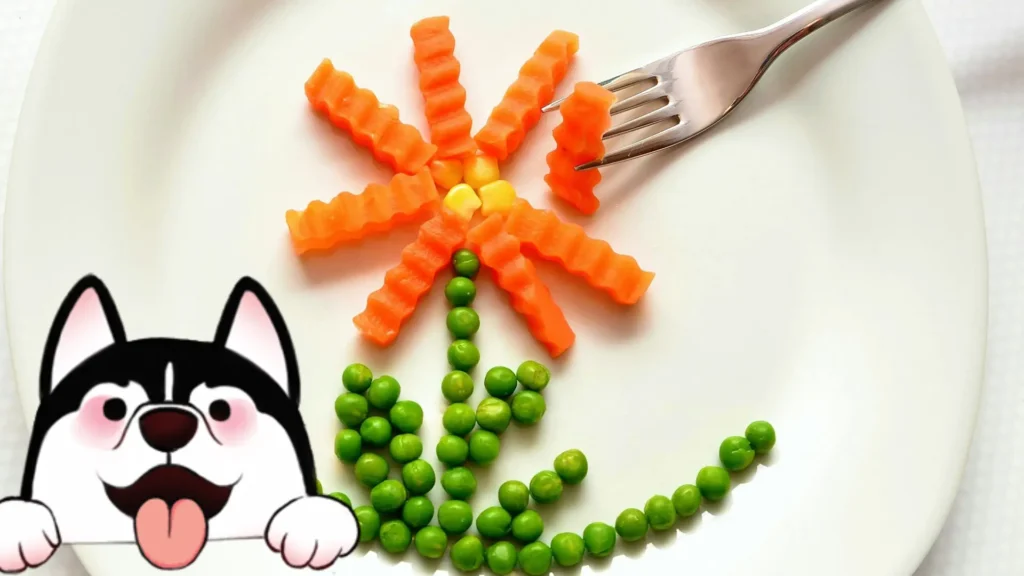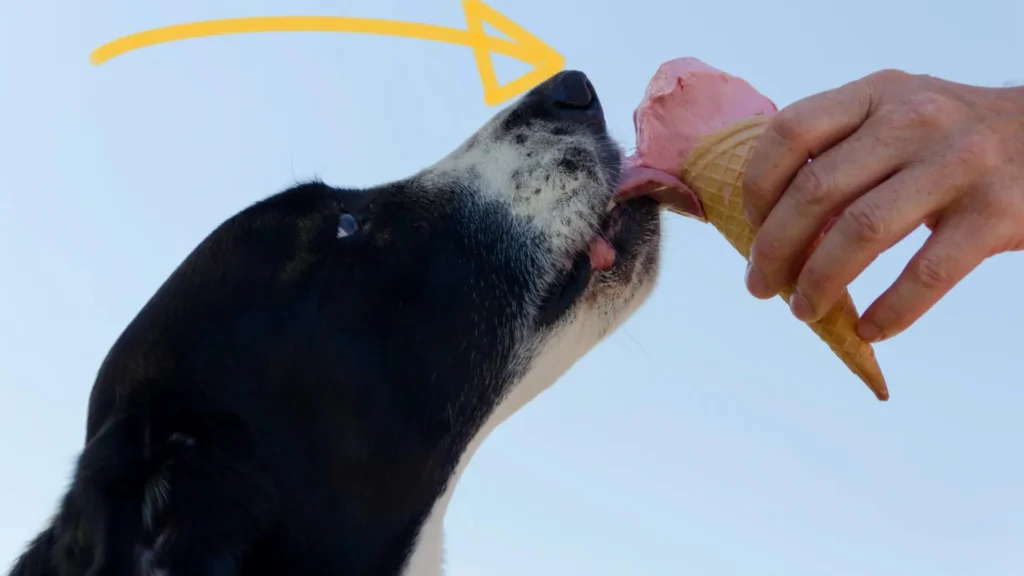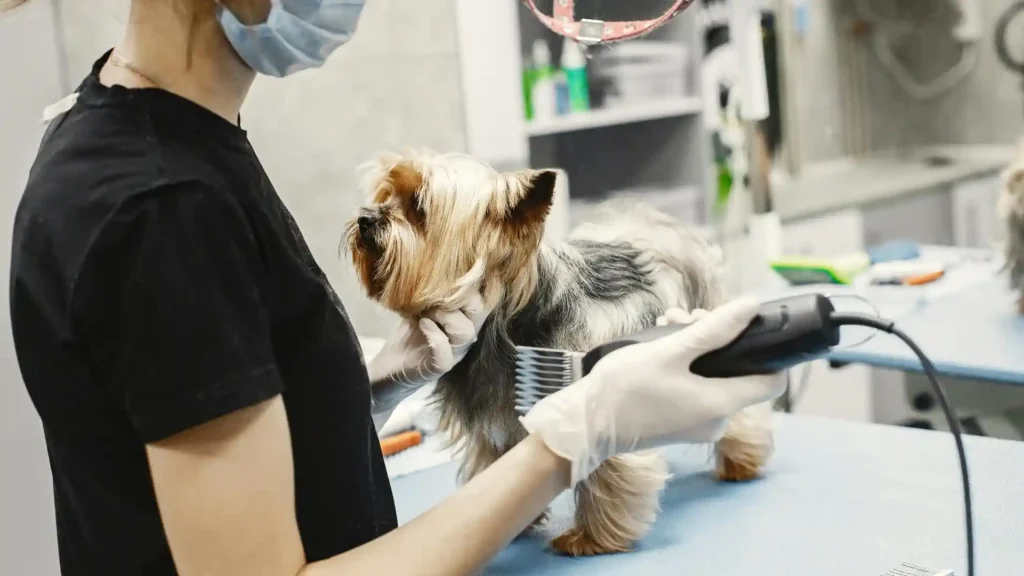All pet owners want to provide dogs with the best care possible. One of the most important aspects of caring for a dog is ensuring they receive proper nutrition. Many pet owners wonder whether it’s safe to share human foods with their furry friends.
The good news is that some human foods are not only safe but can be beneficial for dogs. However, it’s crucial to know which foods are safe and which could be harmful.
Safe Human Foods for Dogs
Focus on foods that are safe and nutritious. Below is a list of safe human foods, categorized by food groups.
Lean Proteins
Protein is a vital component of a dog’s diet. It supports muscle development and energy production.
Chicken, Turkey, and Beef
Cooked, unseasoned lean meats like chicken, turkey, and beef are excellent sources of high-quality protein. Protein provides essential amino acids. It helps maintain muscle mass, support immune function, and provide energy.
Always cook the meat thoroughly. Avoid adding any seasoning, salt, and spices. Remove all bones, skin, and excess fat before offering it to your dog. Avoid bones for dogs. Bones can splinter and cause choking hazards. It can damage the digestive tract. Fatty skin can lead to pancreatitis in dogs.
These meats are rich in B vitamins, iron, and zinc. This contributes to healthy skin, coat, and overall vitality.
Eggs
Eggs are a nutrient-dense food. It provides high-quality protein, healthy fats, and essential vitamins such as vitamin A, vitamin D, and vitamin B12. They also contain choline. Choline supports brain health.
Eggs can be boiled, scrambled, and cooked into omelets. They should always be plain—no butter, oil, or seasonings. Raw eggs are generally discouraged. They may contain harmful bacteria like salmonella and can interfere with biotin absorption.
Eggs are a great source of omega-3 fatty acids, which promote a shiny coat and healthy skin. They also aid in muscle repair and growth.
Fruits
Fruits are a delicious and healthy way to add variety to your dog’s diet. Many fruits are low in calories and packed with vitamins, minerals, and antioxidants. However, not all fruits are safe for dogs. It’s crucial to stick to those that are known to be non-toxic.
Apples
Apples are a crunchy. They provide fiber, vitamin C, and antioxidants. The fiber content aid in digestion, while vitamin C supports the immune system.
Always remove the core and seeds before offering apples to your dog. Apple seeds contain small amounts of cyanide, which can be toxic. Slice the apple into small, bite-sized pieces to prevent choking.
Apples are a low-calorie snack. It helps clean your dog’s teeth naturally due to their crunchy texture. They’re also hydrating and make a great summer treat.
Blueberries
Blueberries are one of the most antioxidant-rich fruits available. They are a superfood for dogs. They are low in calories and high in fiber, vitamin C, and manganese.
Offer blueberries fresh or frozen. Frozen blueberries make a refreshing treat during hot weather. Be sure to feed them in moderation. Too many can cause an upset stomach.
The antioxidants in blueberries help combat free radicals. It reduces oxidative stress and inflammation. They also support cognitive function and improve memory in older dogs.
Bananas
Bananas are rich in potassium, vitamin B6, and vitamin C. They are essential for maintaining heart health, nerve function, and immune support. They also contain natural sugars that provide a quick energy boost.
Peel the banana and slice it into small pieces. Bananas are high in sugar. They should be given in moderation for dogs with weight issues and diabetes.
The potassium in bananas helps regulate blood pressure and supports muscle function. Bananas also contain magnesium. It aids in bone health and protein synthesis.
Watermelon
Watermelon is over 90% water. It is an incredibly hydrating snack for dogs during hot summer months. It’s also low in calories and contains vitamins A, B6, and C.
Remove the rind and seeds before offering watermelon to your dog. The rind is tough and difficult to digest, while the seeds can cause intestinal blockages. Cut the watermelon into small, bite-sized chunks.
Watermelon is a great way to keep your dog hydrated and cool. The vitamins in watermelon support eye health, immune function, and overall vitality.
Vegetables
Vegetables are packed with essential vitamins, minerals, and fiber. Many vegetables are low in calories. So they are an excellent choice for weight management. Here’s a closer look at some of the most beneficial vegetables for dogs.
Carrots
Carrots are one of the best vegetables you can feed your dog. They’re low in calories, high in fiber, and rich in beta-carotene. Beta-cartene converts to vitamin A in the body. Vitamin A is crucial for maintaining healthy vision, skin, and immune function.
Carrots can be served raw or cooked. It depends on your dog’s preference and dental health. Raw carrots are crunchy and act as a natural toothbrush. It helps to clean your dog’s teeth and reduce plaque buildup.
Cooked carrots are softer and easier to digest. Always cut them into bite-sized pieces to prevent choking.
The fiber in carrots promotes healthy digestion. Additionally, carrots are hydrating and make a great low-calorie treat for dogs who love to chew.

Green Beans
Green beans are a highly nutritious and low-calorie vegetable. They provide a wealth of vitamins and minerals, including vitamins A, C, and K, as well as folic acid and fiber. They’re an excellent vegetable for dogs for losing weight.
Green beans can be served raw, steamed, or boiled. Fresh or frozen green beans are both safe. Avoid canned green beans. They often contain added salt or preservatives. Serve them plain without any seasoning, butter, and oil.
The fiber in green beans helps regulate digestion and keeps your dog feeling full longer. It is a great snack for overweight dogs. They’re also rich in antioxidants. They help protect cells from damage and support overall health.
Pumpkin
Plain, canned pumpkin is an excellent source of fiber. It can help regulate digestion in dogs. It’s particularly useful for dogs suffering from diarrhea or constipation. Pumpkin contains soluble fiber, which absorbs water and helps firm up loose stools. It also promote regular bowel movements.
Offer plain, unsweetened canned pumpkin or cooked, mashed fresh pumpkin. Start with small amounts (about 1-2 teaspoons for small dogs and 1-2 tablespoons for larger dogs). Monitor your dog’s response. Avoid pumpkin pie filling. It contains added sugars and spices that can upset your dog’s stomach.
The fiber in pumpkin helps regulate digestion. It’s also rich in vitamins A and C, which support immune health and vision. Additionally, pumpkin is hydrating and low in calories.
Grains and Legumes
Grains and legumes can provide additional fiber, carbohydrates, and essential nutrients to your dog’s diet. Many grains and legumes are safe and nutritious when fed in moderation.
Rice
Plain white and brown rice are easy to digest. They are often recommended for dogs with upset stomachs. Rice is a bland carbohydrate. It provides energy and helps settle the stomach. It’s also a good source of magnesium and selenium. These two minerals support bone health and immune function.
Cook the rice thoroughly without adding any seasoning, butter, and oil. Pair it with lean protein for a bland but nourishing meal. Brown rice is slightly more nutritious than white rice. It retains more of the grain’s natural nutrients.
Rice is gentle on the digestive system. It helps firm up loose stools. It’s also a good source of carbohydrates. When paired with lean protein, rice can be a balanced meal for dogs recovering from illness.
Oatmeal
Cooked oatmeal (without added sugar or flavorings) is a good source of fiber. It can be a suitable option for dogs with wheat allergies. Oatmeal is also rich in vitamins and minerals, including manganese, phosphorus, and magnesium. It supports bone health and energy production.
Cook the oatmeal according to package instructions. Use water instead of milk. Avoid flavored or instant oatmeal. This may contain added sugars or artificial ingredients. You can also mix oatmeal with other safe foods like blueberries and pumpkin for added nutrition.
The fiber in oatmeal helps regulate digestion. It promotes healthy bowel movements. It’s also a good source of complex carbohydrates. Oatmeal is particularly beneficial for senior dogs. It’s easy to digest and gentle on the gut.
Dairy
Certain dairy products can be given in moderation as long as your dog tolerates them well. Yogurt and cheese can provide calcium, protein, and probiotics.
Plain Yogurt
Plain, unsweetened yogurt contains probiotics. They support gut health and improve digestion. Probiotics help maintain a healthy balance of bacteria in the gut, which can reduce the risk of digestive issues like diarrhea and constipation.
Offer small amounts of plain yogurt as a mix into your dog’s food. Opt for yogurt that contains live active cultures for maximum benefit. Avoid flavored yogurts. It contains added sugars and artificial sweeteners like xylitol. Xylitol is toxic to dogs.
Yogurt is a good source of calcium and protein. They support bone health and muscle function. It can also help soothe an upset stomach and improve digestion. Additionally, probiotics in yogurt boost the immune system and reduce inflammation in the gut.
Cheese
Small amounts of cheese can be a tasty treat for dogs. It’s also important to monitor for any signs of lactose intolerance. Cheese is high in calcium and protein.
Choose low-fat or low-sodium cheeses, such as mozzarella or cottage cheese. Offer small cubes as a treat. Avoid feeding large amounts, as cheese is high in fat and calories. If your dog shows signs of lactose intolerance, discontinue feeding cheese.
Cheese provides calcium for strong bones and teeth. It also provides protein for muscle maintenance. It’s a great way to disguise pills if your dog needs to take medication.
However, due to its high fat content, cheese should only be given in small amounts.
Human Foods to Avoid
Some human foods can be toxic for dogs. Always avoid feeding your dog the following:
- Chocolate
- Grapes and Raisins
- Onions and Garlic
- Avocado
- Alcohol and Caffeine
- Xylitol
- Nuts
Sharing human foods with your dog can be a fun. It is a rewarding way to bond. It’s also essential to prioritize their safety and health. Always avoid toxic foods. Feed treats in moderation. With a little knowledge and care, you can ensure your dog enjoys a balanced and nutritious diet.




